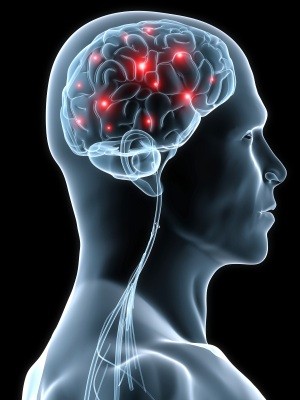Posts Tagged ‘Social-Intelligence’
Reading for pleasure during childhood may lead to higher brain/ cognitive development and mental well-being during adolescence
Early childhood is a critical period for brain development, which is important for boosting cognition and mental wellbeing. Good brain health at this age is directly linked to better mental heath, cognition and educational attainment in adolescence and adulthood. It can also provide resilience in times of stress. But, sadly, brain development can be hampered…
Read MoreWhy our brains weigh 1.3 kilograms, have ~100 billion neurons, consume 20% of the oxygen we breathe
Teamwork Builds Big Brains (Science Now): — “The average adult human’s brain weighs about 1.3 kilograms, has 100 billion or so neurons, and sucks up 20% of the oxygen we breathe. It’s much bigger than an animal our size needs. According to a new computer model, the brains of humans and related primates are so large…
Read MoreNewsletter: Navigating Games for Health and Education
Here you have the twice-a-month newsletter with our most popular blog posts. Please remember that you can subscribe to receive this Newsletter by email, simply by submitting your email at the top of this page. Quick, Are videogames good or bad? That’s an impossible question. Good or bad for what? What specific games are we talking about?…
Read MoreShould Social-Emotional Learning Be Part of Academic Curriculum?
The Secret to Success New research says social-emotional learning helps students in every way. — by Daniel Goleman Schools are beginning to offer an increasing number of courses in social and emotional intelligence, teaching students how to better understand their own emotions and the emotions of others. It sounds warm and fuzzy, but it’s a trend…
Read MoreThe Power of Mindsight-by Daniel Goleman
Daniel Goleman requires no introduction. Personally, of all his books I have read, the one I found most stimulating was Destructive Emotions: A Scientific Dialogue With the Dalai Lama, a superb overview of what emotions are and how we can put them to good use. He is now conducting a great series of audio interviews…
Read MoreExercising Your Lexical Recall and Pattern Recognition
I was sent links to a free online crossword puzzle game and sudoko. While we often talk about the excellent computer-based brain fitness programs available, puzzles can still be good mental exercise … they are just not a complete workout for your whole brain. Word games like crossword puzzles and SCRABBLE® exercise your lexical recall (memory for words that name things), attention, memory, and pattern recognition. They can help maintain your vocabulary and avoid the frustrating tip-of-the-tongue phenomenon that all of us experience from time to time. Sudoko is not a mathematics game in that you don’t actually manipulate the numbers as mathematical entities, but it is a pattern recognition game using symbols (numbers). A very legitimate reason to play casual games is that games can be social and fun — which is good for reducing stress.The drawbacks to puzzles and games is that they are hard to calibrate to ensure increasing challenge, and they generally only exercise a limited number of brain functions.
Read More

